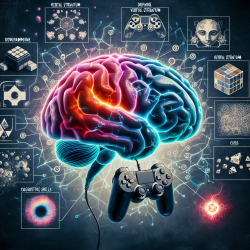Understanding Dementia in Rare Genetic Neurodevelopmental Disorders
As a speech-language pathologist, understanding the nuances of cognitive decline in rare genetic neurodevelopmental disorders (RGNDs) can significantly enhance your practice. A recent systematic literature review titled "Dementia in Rare Genetic Neurodevelopmental Disorders" provides a comprehensive overview of dementia and cognitive trajectories in adults with RGNDs, highlighting the critical need for targeted screening and diagnostic approaches.
Key Findings from the Research
The study identified 40 publications detailing dementia and cognitive/adaptive trajectories in adults with 14 different RGNDs. Dementia was reported in 49 individuals with a mean onset age of 44.4 years. The study emphasizes the importance of using a variety of psychodiagnostic instruments, with MRI being the most reported additional investigation.
Implications for Practitioners
For practitioners, the findings underscore the importance of early and accurate diagnosis of dementia in RGNDs. Here are some actionable insights:
- Early Screening: Implement regular cognitive and adaptive functioning assessments starting in early adulthood to capture peak functioning before any decline.
- Use of Diagnostic Tools: Employ a combination of neuropsychological assessments and neuroimaging to increase diagnostic accuracy.
- Consider Comorbidities: Be aware of comorbid conditions such as epilepsy, psychotic disorders, and movement disorders that may contribute to cognitive decline.
Encouraging Further Research
The review highlights significant gaps in the understanding of dementia in RGNDs, particularly in severe/profound intellectual disabilities. Practitioners are encouraged to contribute to research efforts by documenting and sharing findings from clinical practice, which can help in developing a more comprehensive understanding of these disorders.
Conclusion
By integrating these research findings into your practice, you can improve diagnostic accuracy and care for individuals with RGNDs. This approach not only enhances patient outcomes but also contributes to the broader body of knowledge in this field.
To read the original research paper, please follow this link: Dementia in Rare Genetic Neurodevelopmental Disorders.










